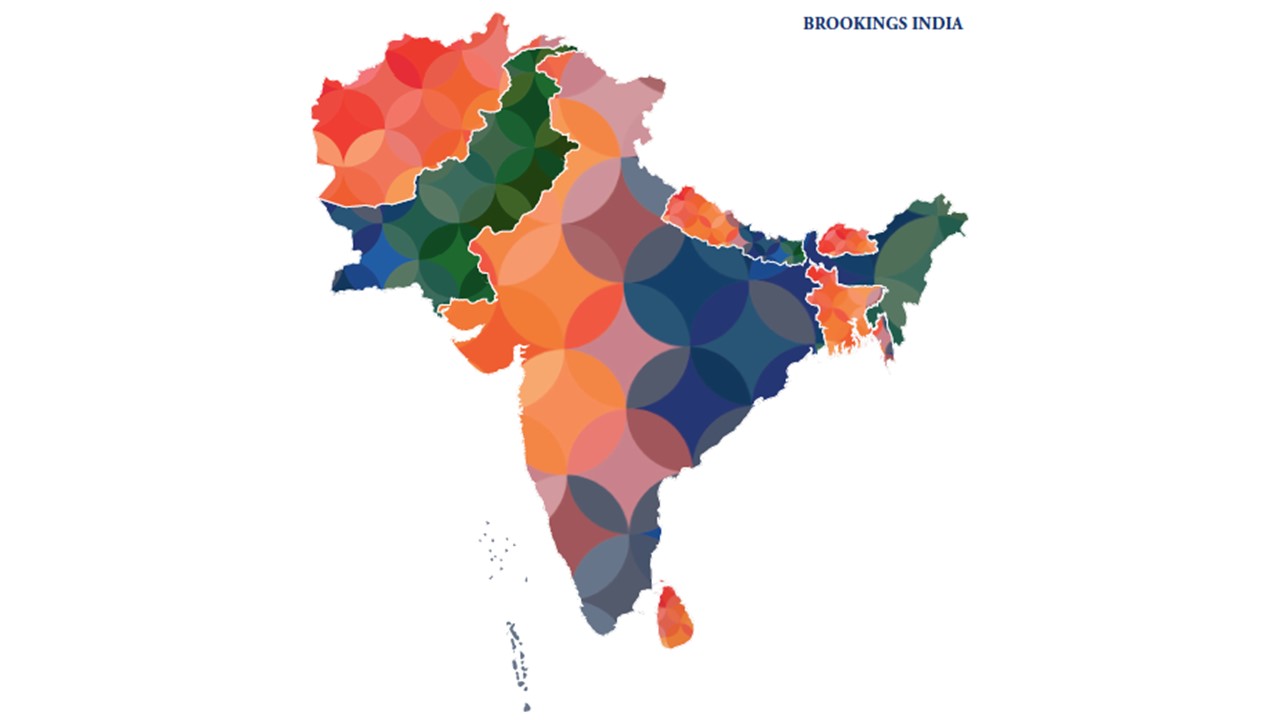Content from the Brookings Institution India Center is now archived. After seven years of an impactful partnership, as of September 11, 2020, Brookings India is now the Centre for Social and Economic Progress, an independent public policy institution based in India.
The Fifth Assessment Report of the Intergovernmental Panel on Climate Change (IPCC) highlights threats to the South Asian region, which are already manifesting. The potential for these forces to adversely impact both livelihood opportunities and, most importantly, survival itself, is significant. While different parts of the region are vulnerable to different threats, climate change obviously does not respect national boundaries! Several threat factors impact pairs or larger combinations of countries in the region. Both adaptation where it is required, and mitigation, where it is possible, will simply not be viable if each country follows a purely domestic approach. The potential benefits of this will very likely be neutralized by a lack of alignment with the actions that similarly impacted countries might be taking. While dealing with climate change itself is unquestionably a global responsibility, anticipating its consequences for the South Asian region and dealing with them will be rendered much more effective with regional cooperation.
The threat from climate change is many and varied across the region. While the IPCC report has attempted to assess different threats by the likelihood of them materializing, an effective collective policy response must aim for comprehensive identification and continuing assessment about the severity of the threat. In the northern parts of the region, more rapid melting of snow and the consequent increase in water flow is clearly a flood threat, of which there have been such vivid examples in recent years. But, importantly, this can change the bio-diversity of large parts of the region, which may impact the productivity of land and the livelihood potential of several traditional activities, both agricultural and non-agricultural.
Along the coastlines, which five countries in the region have, rising sea levels are a significant threat. For the Maldives it is an existential threat. Among other impacts, this will render coastal freshwater resources brackish. Coastal plains are both very fertile and densely populated, so these developments will have significantly disruptive impacts on land productivity and the viability of human habitations. If large coastal areas become submerged, which is a reasonably likely scenario, large-scale displacement of people may ensue; some of this may inevitably be across borders, which raises both economic and political concerns. Even if the migration is within national boundaries, a shift of people to parts of the country in the interiors that are less fertile and, particularly, vulnerable to water shortages, may have political consequences.
One threat that has been highlighted by the IPCC report is the increasing frequency of extreme weather events. In part, this may exacerbate the vulnerability and the impacts of factors such as snow melt. But, it may also have larger structural impact on groundwater, which is such a critical resource in many parts of the region. Also, the effects on bio-diversity may adversely impact land productivity and, through this, economic structure and livelihoods.
Of course, all these threat assessments emerge from a forward-looking assessment of the dynamics of global climate and its regional implications. However, the fact that these are probabilistic outcomes should in no way diminish the importance of the actions that countries in the region need to take to meet them. As of today, there are several indications that all the threats referred to above are already manifesting in many parts of the region. The region cannot afford to ignore these developments.
To the extent that the threats are regional, a regional institutional structure for threat assessment and designing response strategies is necessary. The first stage of this is built around the already proposed South Asia Disaster Knowledge Network (SADKN), but with an enhanced responsibility and parallel focus on longer-term threats from climate change. Simply pooling knowledge, both from the global and local research communities on threats and then making detailed regional assessments of vulnerabilities is a necessary first step.
The second phase of institutional capacity development will require the development of sub-groups within the broader regional framework focused on dealing with specific threats with cross-border implications. Each sub-group will comprise two or more countries that share vulnerabilities to a specific threat. Each group would focus on adaptation and mitigation strategies with respect to the threat itself, but, in cases where cross-border issues are involved, e.g., displacement of people, would have to consider financial and logistic arrangements to best deal with these as well.
The apex institution, with all countries participating, would work at aggregating the inputs from the sub-groups. Each sub-group’s activities would have financial and technological implications as well as requirements for action by various state and local governments. The apex body could take on the responsibility of communicating the full implications of the recommendations of each sub-group to each national government and designing financial and other resource-sharing mechanisms to ensure an equitable distribution of costs.
This is unquestionably an extremely ambitious goal for regional cooperation. However, the threat is real, its consequences can be disastrous for everybody, and there are clear benefits from cooperation and collective action. The countries of the region cannot afford to ignore this imperative.
_______________________________________________________________________________
This chapter is a part of Brookings India’s briefing book, “Reinvigorating SAARC: India’s Opportunities and Challenges.” To view the preface and table of contents, click here.
***
Subir Gokarn is the director of research at Brookings India in New Delhi and a senior fellow at the Brookings Institution. Previously, he was the deputy governor of the Reserve Bank of India, where he oversaw monetary policy, research, financial markets, communications, and deposit insurance.
_______________________________________________________________________________
The Brookings Institution is committed to quality, independence, and impact.
We are supported by a diverse array of funders. In line with our values and policies, each Brookings publication represents the sole views of its author(s).



